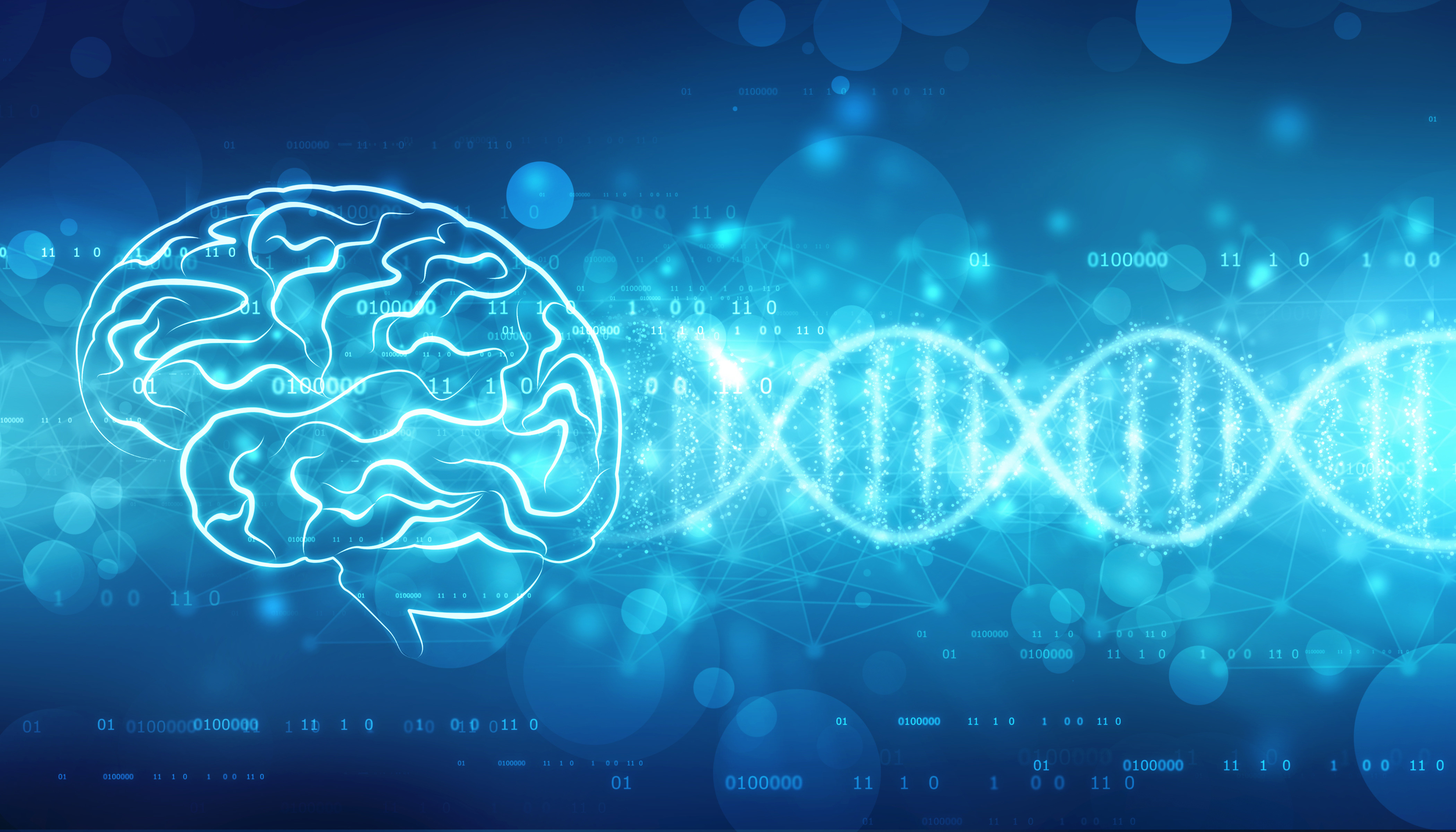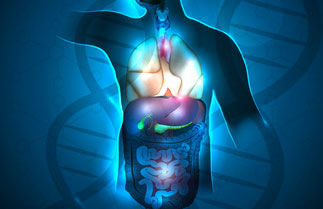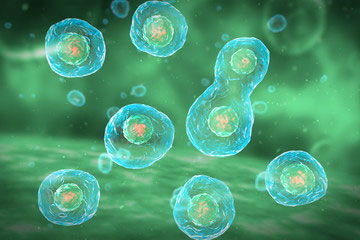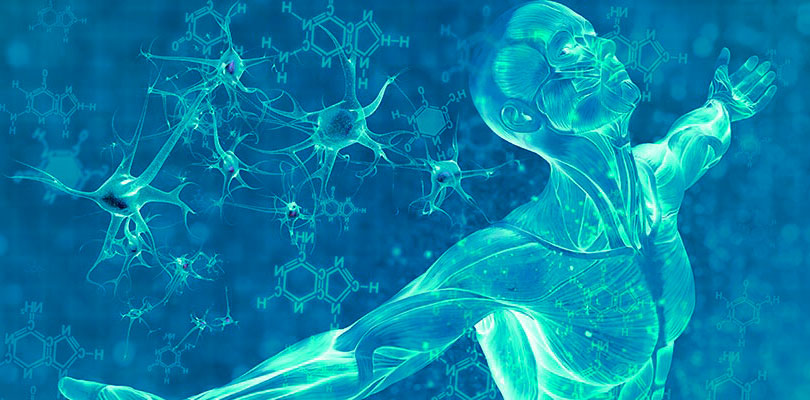
Being overweight is a behavioural disorder, not a disease.
 Excess weight, like allergy-related disorders, is only an indicator, a consequence. Finding a remedy requires working on the cause. The main cause is unconscious stress, which is mostly due to the action of epigenetics on our behaviour.
Excess weight, like allergy-related disorders, is only an indicator, a consequence. Finding a remedy requires working on the cause. The main cause is unconscious stress, which is mostly due to the action of epigenetics on our behaviour.
Scientists specialising in the study of cellular memory have pointed out that major stresses leave their mark directly on genes and are passed on to descendants through reproduction. That is called epigenetics. Science above genes. The aim of this process is to transmit traumatic events in order to prevent their recurrence. Every individual, whether overweight, underweight or otherwise, thus has an unconscious memory of the extreme emotional situations experienced by their ancestors.
Epigenetics modifies the perception of life, which becomes reality for those who live it.

Thus, they experience a representation of reality that provokes varying degrees of anxiety, and their reactions are less determined by reality than by the signals from their cellular memory. That is what starts off excessive and irrational reactive behaviours, such as compulsive eating or binge eating. Some memories of stress can go back several generations. In the context of epigenetic transmission, food plays a number of roles and can lead to uncontrollable obsessive behaviour:
- For instance, famines may result in the epigenetic transmission of the fear of food shortages. Some people develop anxious behaviour when faced with food (obsessiveness, tendency to hoard food in cupboards and in the body, feeling they have to eat or not being able to stop eating, eating in anticipation, etc.). You would think that the individual is still living in an age when food was scarce. They are fully aware of their excessive behaviour in relation to food, but are powerless to actually do anything about it. It is as if they were conditioned. In other words, memories of famines disrupt the normal innate function of nutrition, so that there is never any shortage of food. Epigenetic transmission plays precisely this role, by making chemical modifications to genes and modifying innate behaviour. Such automatic behaviour that anticipates suffering applies to all situations that generate irrational and irrepressible behaviour. Fortunately, it can be reversed, because epigenetic transmission can be modified and changed, thanks in particular to discoveries in neuroscience.
- But that is not all. The primary function of food is to provide energy, through the calories contained in the food, and give pleasure, because eating has to be enjoyable since it is vital, and satisfaction, because of the pleasure it gives the eater. When life is difficult, whether or not it is consciously experienced as a struggle, the brain may decide to divert the function of nutrition and focus on the soothing and comforting properties of eating in order to protect itself. It is then used as a universal remedy (for fatigue, boredom, nervousness, self-esteem issues, etc.). Eating is no longer a way to maintain good health, but food is used as an antidepressant and a pain killer . When that happens, food has an effect on the same neural circuits as drugs, alcohol or cigarettes and relieves the individuals from their suffering. Chocolate in particular is known for its alkaloid-like properties, and like any drug, habituation makes you consume more of it. Such reactive and impulsive behaviour has absolutely nothing to do with lack of willpower, that is for sure!
- But that is not all. The primary function of food is to provide energy, through the calories contained in the food, pleasure, because eating has to be enjoyable since it is vital, and satisfaction, because of the pleasure it gives the eater. When life is difficult, whether or not it is consciously experienced as a struggle, the brain may decide to divert the function of nutrition and focus on the soothing and comforting properties of eating in order to protect itself. It is then used as a universal remedy (for fatigue, boredom, nervousness, self-esteem issues, etc.). Eating is no longer a way to maintain good health, but food is used as an antidepressant and for pain relief. When that happens, food has an effect on the same neural circuits as drugs, alcohol or cigarettes and relieves the individual from their suffering. Chocolate in particular is known for its alkaloid-like properties, and like any drug, habituation makes you consume more of it. Such reactive and impulsive behaviour has absolutely nothing to do with lack of willpower, that is for sure!

The basis for the science of cellular memory.
Epigenetics shows that reactive behaviour and the need for protection is brought on by the cellular environment, and by the conscious or unconscious perception of anxiety-producing experiences. In the context of epigenetics, the word environment is to be understood in its broadest sense. It does not merely refer to the surroundings (the conditions of existence) in which a person lives, but also, more fundamentally, the individual’s perception of the world in which they live. To tackle the weight problem, it is of course essential to act on stress-inducing feelings. Stress can have several origins, and so the effort must apply “on all fronts”:
- by providing cells with all the nutrients necessary for their proper functioning, in particular by learning to eat according to the instincts once again;
- by doing physical exercise to bring oxygen to the brain and allow better elimination of toxins;
- by engaging in relaxation techniques, meditation and other therapies.
- but above all, it is crucial to work on unconscious stress – that which leads to reactive behaviour – which is transmitted by epigenetic inheritance through cellular memory. The sufferer must be made aware of such stress, which must be altered by experience. Otherwise, the protective reactions will either not stop at all or resurface sooner or later.

As long as the individual continues to live their life “by epigenetic delegation”, they will not be acting freely and excess weight will only be managed on the surface.
The stress involved is unconscious physiological and psychological stress. Neuro-Unconscious Behaviours® transmitted by epigenetic inheritance are at the source of all action seeking protection or reassurance. The neuro-behavioural nutrition® coaches certified for Méthode Meer® are trained to manage all types of addiction and compulsive behaviour and provide concrete solutions to break free from obsolete transmitted behaviour. Becoming overweight does not happen by chance. Neither is it irreversible, it happens for a reason, and you need to understand that reason to permanently eliminate the problem. The way you eat says a lot about your view on life and vice versa. Learning to eat according to our instincts is the starting point for getting rid of excess weight over the long term or even permanently.
As its name suggests, Méthode Meer® is a method that will teach you to break out of behavioural imprisonment and be free at last! Letting go of control and food-related obsessions.
The neuro-behavioural nutrition® coaches certified by Méthode Meer® are trained to help you understand and work on all the alienating behaviour that drives you to eat or store excess fat, including the behaviour that is part of your epigenetic inheritance. Recent discoveries in neuroscience also provide ways to learn to shake off the shackles of automatic pain-avoidance behaviour, which prevents you from living in harmony with yourself and others.
Méthode Meer® will make you rediscover the true “taste” of life and come to terms with food, your scales and your appearance!
* Definition of epigenetics: epigenetics is not a recent science. The term was coined by Conrad Waddington in 1942 and in its current definition, epigenetics refers to the study of the influences of the cellular or physiological environment on gene expression.
** 95% of people who have been on diets regain weight and 80% of them weigh more than they did before the diet, according to the expert report published in November 2010 by ANSES, the French national agency for food, environmental and occupational health safety.



